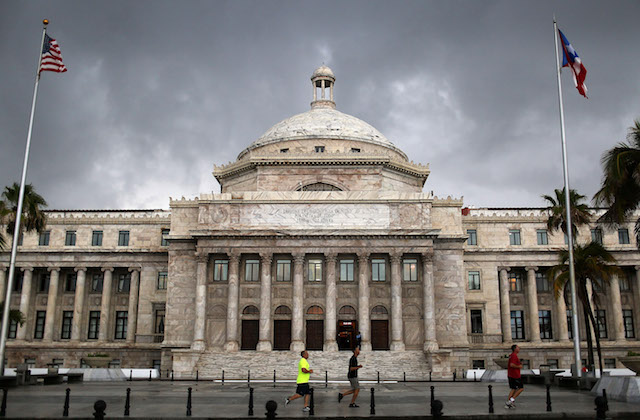The early Friday (February 9) morning passage of a budget deal by the Senate and House could potentially lay the groundwork for Puerto Rico to recover from the devastations wrought by Hurricane Maria, with $16 billion earmarked for the island.
The storm hit the island on September 20, wiping out the electrical grid and causing significant damage to property and ports. Nearly five months later, 28 percent of residents (approximately 400,000 people) are still without power. Unemployment continues to rise, food shortages remain and thousands are leaving for the mainland United States. In addition, as previously reported by Colorlines, Puerto Rico is unable to meet the reqirements of the debt restructuring plan that was created after island officials declared bankruptcy in May 2017.
According to The New York Times, “The deal includes $4.8 billion to replenish dwindling Medicaid funds, $2 billion to restore the shredded power grid and $9 billion for housing and urban development projects.” It gives the island a total of $16 billion of the $90 billion allocated for disaster relief in Puerto Rico, the U.S. Virgin Islands, Florida and Texas—all of which are still recovering from hurricanes Irma, Maria and Harvey.
The $16 billion, notes The Washington Post, is only a fraction of the $94 billion that Puerto Rico Governor Ricardo Rosselló said was necessary for recovery, which includes $17 billion to repair the electrical grid alone.
Per The Times:
By comparison, Florida’s citrus industry is receiving $2.3 billion to recover from Hurricane Irma.
When Hurricane Katrina hit the Gulf Coast in 2005, Congress approved $10 billion for the Federal Emergency Management Agency four days later, and another $50 billion six days later. The federal government is still spending money on Katrina assistance, more than 12 years after the storm’s landfall.
While Rosselló and other Puerto Rican political leaders believe more will be needed for recovery, many consider the money granted in the new deal to be essential. Says Representative Jenniffer González-Colón, Puerto Rico’s nonvoting delegate in Congress, “Receiving these funds is important, and that will demonstrate that Puerto Rico will use them wisely and with transparency. That’s an important issue here: We can be a model for how to invest in infrastructure on the island.”
